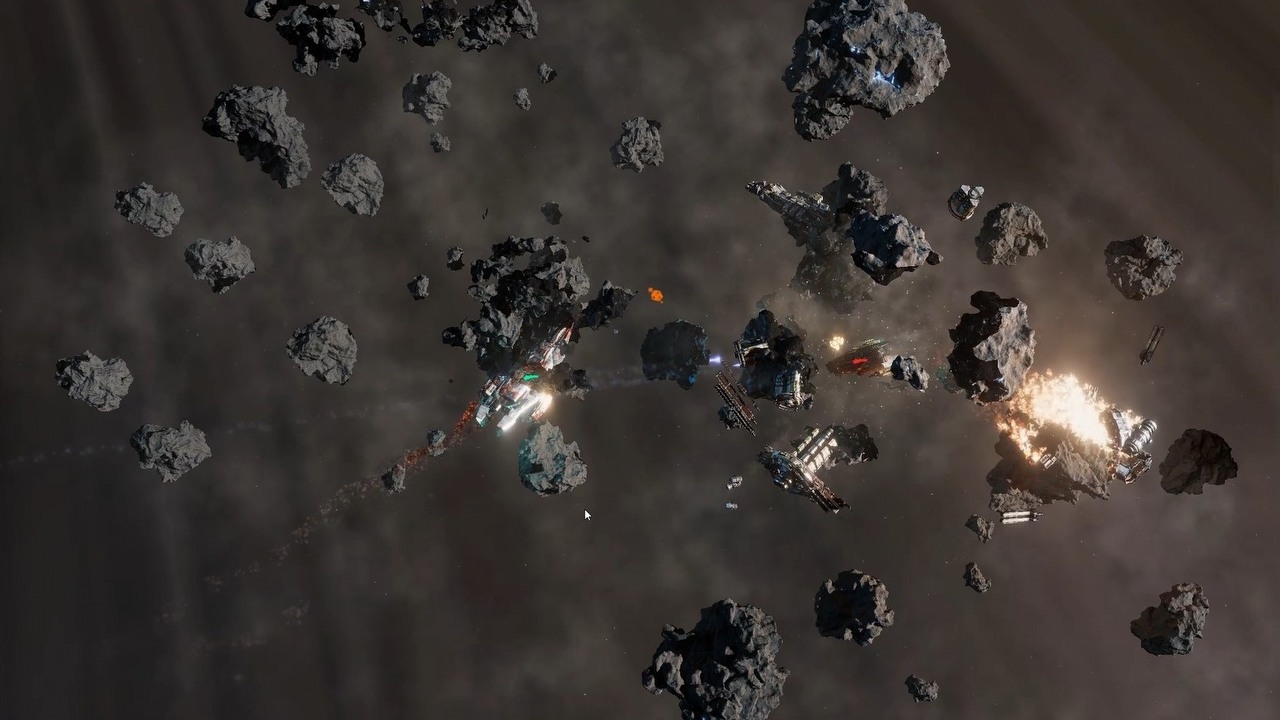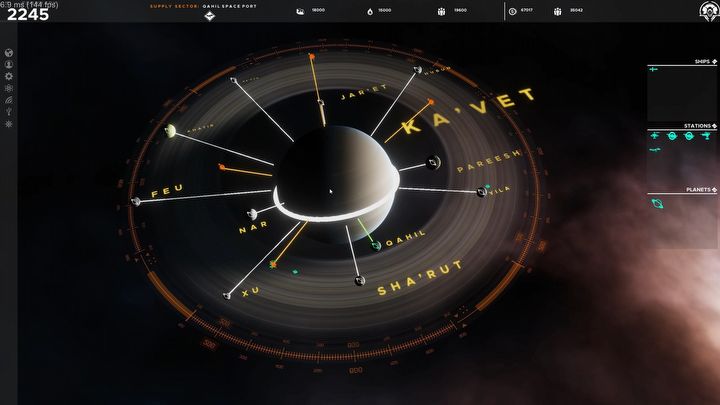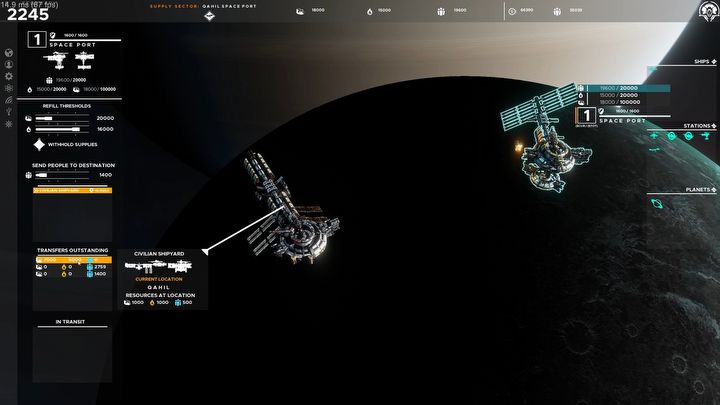Intriguing Space RTS Falling Frontier Coming to Steam
Are you looking for a real-time strategy where resources and logistics are more than just numbers on the screen and every decision and unit matters? If so, you might be interested in Falling Frontier, a unique space RTS from a one-man studio.
2

- RTS Falling Frontier will be coming to Steam's Early Access in June;
- Developed by Stutter Fox Studios, the game won't just be visually striking - it will emphasize realistic portrayal of space warfare;
- The hard science-fiction approach will be reflected in the physical presence of resources in the game world, forcing us to take care of supplying our units.
Although the last few months were not full of great (and tangible) announcements, throughout 2020 and early 2021 we had no shortage of attractions of one kind or another. Starting with the big releases like Cyberpunk 2077 or the new Call of Duty, and ending with enigmatic announcements of projects related to James Bond or Mass Effect, every now and then new significant titles attracted the attention of players. So it's easy to overlook smaller, but no less intriguing games. The RTS Falling Frontier is definitely among them.
At first glance, Stutter Fox Studios' work appears to be very modest. The dev "team" consists of only one person, Todd D'Arcy, assisted only by composer Scott Buckley. The developer had to give up such elements as a story campaign, multiplayer, and mod support (at least for now - its addition in the future will depend on the game's success). A glance at the screenshots is enough to see that this is not a typical low-budget project. Visually, Falling Frontier looks great, especially for a real-time strategy game. And this is by no means the main reason why Todd D'Arcy's work stirred the interest of players, including the host of the PartyElite channel, who had the opportunity to talk with the creator and discussed the gameplay in detail.
The developer mentions many titles that inspired his work, including classics like Dune and Alien. However, the biggest influence was a specific genre of science-fiction, so-called hard SF. In a nutshell, the genre focuses on presenting a vision of the future that is consistent with actual science, thus keeping simplifications, understatements, and fantasy to a minimum. D'Arcy's goal was to depict a space conflict while adhering to scientific facts and the principles of both ancient and modern art of warfare. Hence the consultations with a naval veteran who served on a submarine (which has more in common with the vessels appearing in Falling Frontier than ships from Star Wars or such).
The basic premise of Falling Frontier doesn't make it stand out from other RTS games: we build a base, search for resources, and fight space battles. What makes the game unique is its realistic approach to each of these aspects. This can be seen in the solution to the issue of resources, which are not just a number added to a single pool. Each available unit of resource - ore, fuel, and manpower - will be physically located in the game world and we will use it only where it is. So if we want to replenish the supplies of a cruiser, it's not enough to click one button - the unit will have to go to the location that has the desired goods (food, fuel, ammunition). The same applies to ship upgrades, and each such action will also take some time (needed, for example, to dock at the spaceport).

Faster than light travel is the only way to avoid waiting literal hours for a ship to arrive to its destination.
A similar emphasis on realism can be seen in other aspects of the game, including developing technology, using or jamming radars, etc. All of this makes economic and military issues closely intertwined. Destroying or blocking access to supplies can incapacitate enemy units when they run out of food or fuel, and losing buildings also means destroying the resources stored in them.
However, aiming at a specific segment of the ship in combat will enable us to capture it or - if we are very lucky and hit the ammunition storage - instantly destroy it. We have to be careful though because the bullets themselves are also physically present in the game, so firing them doesn't have to be synonymous with inflicting damage. Add to this the ability to interrogate captured officers, the huge cost of creating and training a fleet, and many, many other mechanics, and we get an RTS in which every decision, unit, and building counts. A sort of side effect of this is the small size of the battles - in skirmishes, you'll usually control no more than five ships.
Most importantly, these are not just beautiful promises. The developer has repeatedly shown the game in action on YouTube, discussing its various elements. Anyway, Todd D'Arcy is still polishing the title, removing bugs and improving the balance of gameplay before the early access release. Of course, only then will we really find out if Falling Frontier is as great as the footage shared by Stutter Fox Studios suggests. For now, we can only follow the reports and announcements from the developer, shared on YouTube, Discord, Twitter and Steam.
2

Author: Jacob Blazewicz
Graduated with a master's degree in Polish Studies from the University of Warsaw with a thesis dedicated to this very subject. Started his adventure with gamepressure.com in 2015, writing in the Newsroom and later also in the film and technology sections (also contributed to the Encyclopedia). Interested in video games (and not only video games) for years. He began with platform games and, to this day, remains a big fan of them (including Metroidvania). Also shows interest in card games (including paper), fighting games, soulslikes, and basically everything about games as such. Marvels at pixelated characters from games dating back to the time of the Game Boy (if not older).
Latest News
- End of remote work and 60 hours a week. Demo of Naughty Dog's new game was born amid a crunch atmosphere
- She's the new Lara Croft, but she still lives in fear. Trauma after Perfect Dark changed the actress' approach to the industry
- „A lot has become lost in translation.” Swen Vincke suggests that the scandal surrounding Divinity is a big misunderstanding
- Stuck in development limbo for years, ARK 2 is now planned for 2028
- Few people know about it, but it's an RPG mixing Dark Souls and NieR that has received excellent reviews on Steam, and its first DLC will be released soon



